Events
| Name | organizer | Where |
|---|---|---|
| MBCC “Doing Business with Mongolia seminar and Christmas Receptiom” Dec 10. 2025 London UK | MBCCI | London UK Goodman LLC |
NEWS
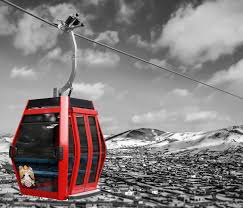
Construction of Ulaanbaatar Cable Car Project Begins www.montsame.mn
As part of the comprehensive project aimed at reducing traffic congestion in Ulaanbaatar City, the construction and installation work for the aerial cable car transport system commenced on March 10, 2025.
The feasibility study for the second line of the Project, connecting Yaarmag and Artsat Valley to Unur Residence Complex, has been approved. Anchor components for two stations and 19 supporting pillars have been received, with the remaining equipment for the two stations and the T1 and T8 support pillars scheduled for delivery in April 2025. The production of the cable car cabins is also set to begin that same month.
Once operational, the cable car system on the Yaarmag-Artsat-Unur Residence Complex route will have the capacity to transport 2,320 passengers per hour during peak times, utilizing a total of 98 cabins, each accommodating up to 10 passengers. The route will cover the distance in approximately 11 minutes, traveling at a speed of 22 km/h. After installation, the system will undergo a six-month trial run without passengers.
The Yaarmag-Kharkhorin cable car line will stretch 4.2 km, including two stations and 19 support pillars, with heights ranging from 7.5 to 42 meters.
The Project’s Chief Engineer G. Tuvshinsanaa stated, “Today marks the start of installing the support pillars for the aerial cable car system. Of the 19 pillars, six will be placed in the Tuul River basin, ensuring completion ahead of spring floods and snowmelt. Once the support pillars are in place, we will move on to assembling the metal framework. The construction is expected to be completed by December this year, followed by a three-month period for testing and adjustments. The system is planned to be fully operational by the second quarter of next year.”
The Construction Manager at “Monnis Engineering” LLC J. Ankhbayar noted, “The construction will include reinforced concrete pile foundations and column foundations. All support structures, manufactured in France, are expected to arrive by May. Drilling will reach depths of 15 to 20 meters, with concrete foundations extending six to nine meters. Additionally, two-storied buildings will be constructed at both stations to house the cabins. In terms of safety, we are collaborating with Ulaanbaatar’s Rescue Unit and experts from France to exchange knowledge and ensure best practices.”
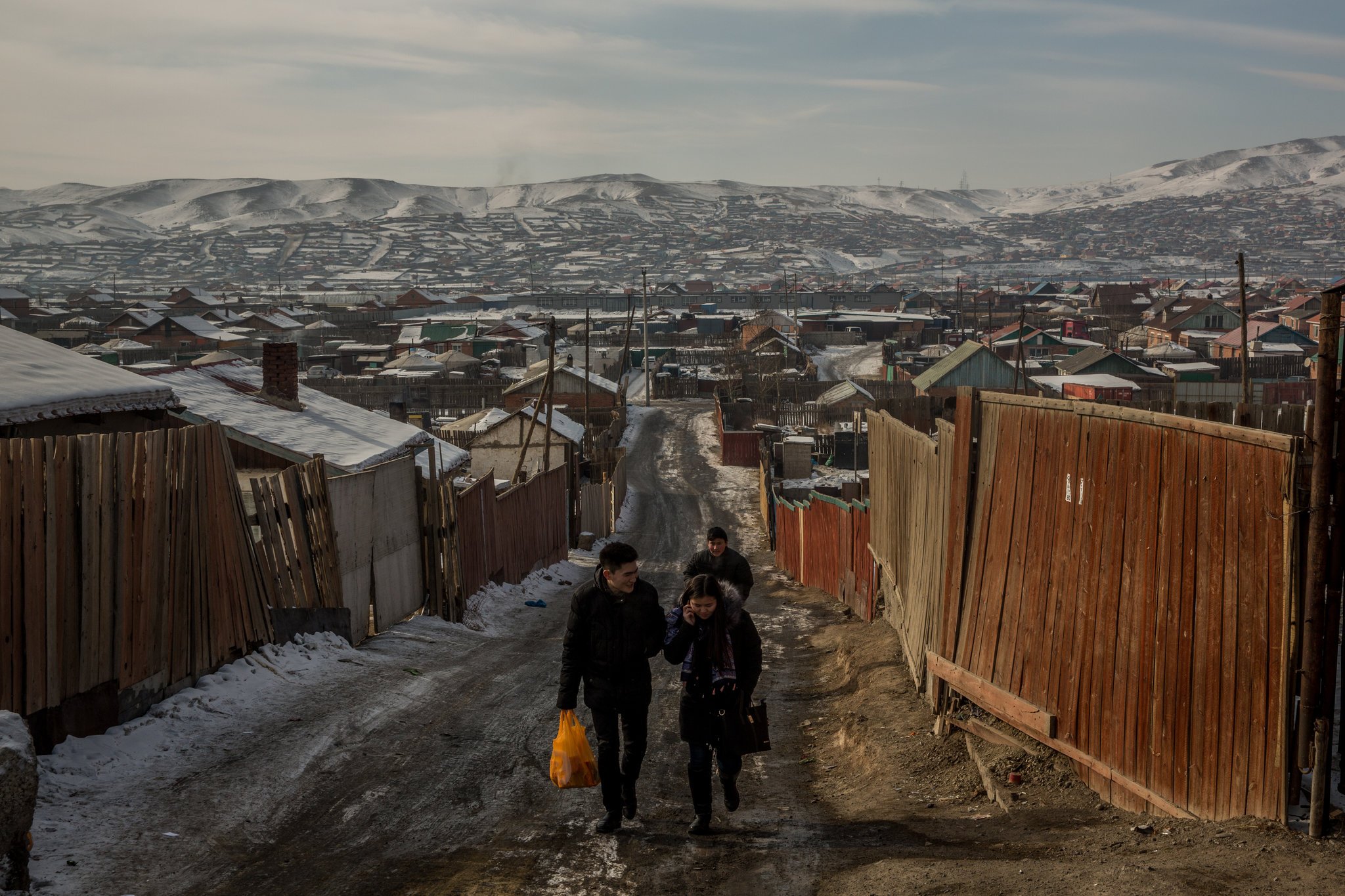
Switching to gas or electric heaters save households up to MNT 100,000 bills www.gogo.mn
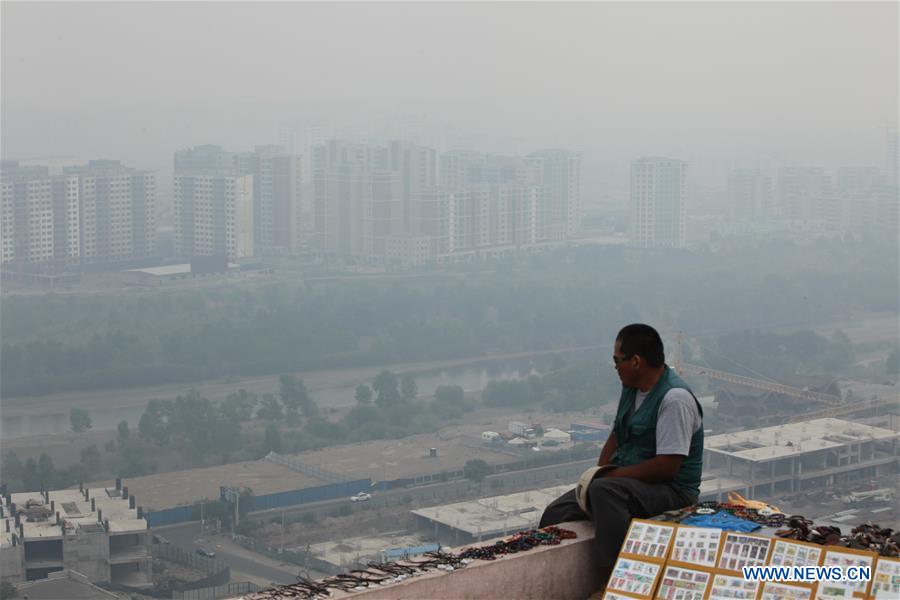
Heating price to increase from May 16 and water prices to increase from September 16 www.gogo.mn
The Energy Regulatory Commission has announced upcoming increases in heating and water prices, which are expected to impact inflation.
According to B.Lkhagvasuren, the Governor of the Bank of Mongolia, heating prices will rise by 85% starting May 16, 2025, following a decision made last November. Additionally, hot and cold water prices will increase from September 16, 2025.
Currently, the heating tariff stands at MNT 33,862 per unit, while the actual cost is MNT 62,960, causing financial losses for utility providers. Household electricity and heating tariffs have remained unchanged since 2019. The Energy Regulatory Commission stated that the price adjustments aim to align with market principles and enhance the energy sector's financial sustainability.
Water prices per 1 cubic meter:
Clean water: MNT 1,340
Hot water: MNT 1,632
Wastewater: MNT 1,070
Base water price: MNT 3,000
These adjustments are expected to contribute to inflation, which currently stands at 9.6% nationwide. In response, the Bank of Mongolia has raised the policy interest rate from 10% to 12%.

Mongolia issues blizzard, yellow dust storm alert www.xinhuanet.com
Mongolia's National Agency for Meteorology and Environmental Monitoring on Monday issued warning of blizzards, high wind speeds and yellow dust storms.
According to weather forecasters, snow storms will sweep central and eastern provinces of the country, starting from the night of March 10.
Meanwhile, strong winds and yellow dust storms are expected to hit the country's southern Gobi desert provinces such as Umnugovi, Dundgovi and Dornogovi, from Tuesday to Wednesday, with an average wind speed estimated at 18-24 meters per second, said the weather monitoring agency.
In this regard, the country's meteorological agency warned the residents of Ulan Bator and 21 provinces, including nomadic herders, to take extra precautions against possible disasters.
Spring in Mongolia can be harsh, as the weather is set to make a dramatic shift from harsh winter conditions.

Over 71,000 hectares of land destroyed in wildfires in Mongolia so far this year www.xinhuanet.com
Fourteen forest and steppe fires have been registered across Mongolia since the beginning of this year, burning 71,495 hectares of forest and grassland, the country's National Emergency Management Agency said Monday.
Some 820 people and 149 firefighting vehicles were involved in extinguishing the wildfires, said the agency in a statement.
According to experts, the main causes of natural fires are careless handling of fire by citizens, as well as deliberate burning of grass and debris.
Due to the dry and windy weather conditions in most parts of Mongolia, in the spring of 2025 there is a high risk of sudden forest-steppe fires, it said, urging the public to prevent possible wildfires.
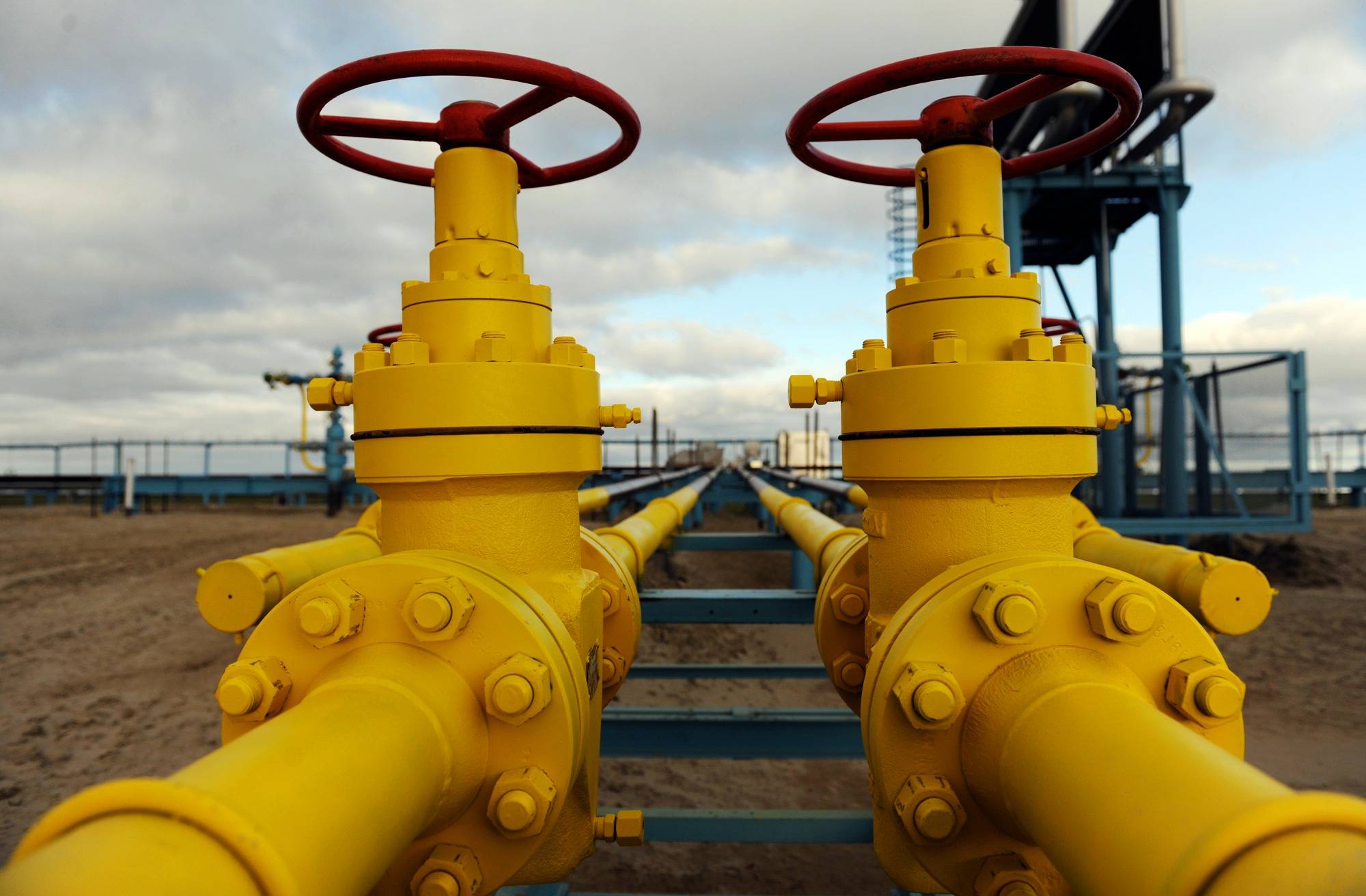
Mongolia still expects new Russia-China gas pipeline to go ahead www.scmp.com
Mongolia still expects the Power of Siberia 2 project – a major new gas pipeline connecting Russia and China – to go ahead despite a turbulent geopolitical situation that could lead to a realignment in relations between Beijing, Moscow and Washington.
The pipeline, if completed, would divert 50 billion cubic metres (1.8 trillion cubic feet) of Russian natural gas per year that previously supplied Europe to China via Mongolia.
But speculation has been growing in recent months that progress on the project has stalled, with analysts arguing that China is reluctant to increase its dependence on Russian energy imports.
Power of Siberia 2 was omitted from the Mongolian government’s 2024-28 work programme, and Chinese and Russian officials have provided few recent updates on the project.
Yet, Mongolia’s first deputy prime minister, Gantumur Luvsannyam, insisted that negotiations over the pipeline were proceeding and that the talks were making progress.
If China and Russia reach a deal and start building the pipeline, we are ready to cooperate and accelerate the project
Gantumur Luvsannyam, Mongolian minister
“The reason why it’s not included in the action programme of the government of Mongolia is because it is an issue that cannot be decided one-sidedly by [the Mongolian cabinet],” Luvsannyam, who also serves as Mongolia’s minister of economy, told the Post in an interview.
“For the project to proceed, China and Russia must first reach an agreement.”
Luvsannyam also stressed the project was not being held up by differences at the political level, but by business concerns held by China National Petroleum Corporation (CNPC) – the state-owned Chinese energy company.
“I imagine that the only issue is CNPC, the buyer, needing to strike a deal on investment and price with the [Russian] supplier,” he said.
President Xi Jinping, Russian President Vladimir Putin, and the then Mongolian head of state first signed a memorandum of understanding to create a China-Mongolia-Russia Economic Corridor a decade ago.
Luvsannyam said the Mongolian government was “currently in discussions with the Chinese National Development and Reform Commission to add two or three projects to the memorandum of understanding” and that those talks would be “finalised soon”.
A first pipeline connecting Russia and China, Power of Siberia 1, has already been completed, and is capable of delivering 38 billion cubic metres of natural gas to northeast China annually. The pipeline has also been extended to supply gas to Shanghai.
But China has been working to diversify its energy supplies in recent years to reduce its risk exposure to any individual market.
Russia was China’s second-largest source of pipelined gas imports last year – its US$8 billion of shipments accounting for 38.1 per cent of China’s total supply. It was also the third-largest supplier of liquefied natural gas to China, providing 10.8 per cent of its total imports.
“If China and Russia reach a deal and start building the pipeline, we are ready to cooperate and accelerate the project,” said Luvsannyam. “The government of Mongolia is committed to advancing this project.”
Chinese officials remain tight-lipped on Power of Siberia 2. In an interview published by China Electric Power News on Tuesday, Liu Hong, director of the National Energy Administration’s petroleum and natural gas department, did not mention the pipeline when listing her department’s major projects for 2025.
On Wednesday, the National Development and Reform Commission stated in its work report at the “two sessions” that China would “practically push forward energy cooperation” with global partners, including the expansion of the Power of Siberia 1 pipeline.
BY:
Kandy Wong returned to the Post in 2022 as a correspondent for the Political Economy desk, having earlier worked as a reporter on the Business desk. She focuses on China's trade

Baganuur Battery Storage Power Station Supplies 17692.9 Mwh Energy to the Central Grid www.montsame.mn
As of today, the Baganuur Battery Storage Power Station has supplied 17,692.9 MWh of electricity to the central grid, providing power to the energy system of the central region of Mongolia, particularly Ulaanbaatar City.
This power plant is environmentally friendly, producing green energy and storing electricity during nighttime hours for redistribution during peak demand. Mongolian engineers, technical staff, and employees are successfully operating the plant.
Ulaanbaatar City accounts for more than 60 percent of the country’s total energy consumption, bearing an average load of 1,245 MW in the power system. During the winter of 2023-2024, Ulaanbaatar’s energy system faced a shortage of 200 MW. However, this deficit was compensated for this winter, thanks to the integration of the 150 MW Buuruljuut Power Plant and the 50 MW Baganuur Battery Storage Power Station into the central grid since December 2024.
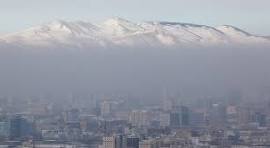
Ulaanbaatar to Subsidize Heating Systems in Green Zones to Improve Air Quality www.montsame.mn
On March 8, 2025, Governor of the Capital City and Mayor of Ulaanbaatar Nyambaatar Khishgee informed the members of the Performance Monitoring Unit regarding the draft regulation for the installation of electric heaters and gas-powered appliances in households of the ger areas located in the air quality improvement zones and provision of the price incentives for their use.
The Governor of the Capital City noted, “Following the directives of the Performance Monitoring Unit, the Citizens’ Representative Khural of the Capital City is preparing to issue a resolution on establishing boundaries of Ulaanbaatar’s green zones and providing price incentives. The second air quality improvement zone will cover 100 thousand households in Bayankhoshuu, Tolgoit, Doloon Buudal, and Amgalan areas. In the first phase, 30 thousand households will be included. Participation will be voluntary, offering households a choice. Eligible households will install the devices and benefit from the price incentives. They will be required to reduce heat loss and eliminate the use of solid fuels.”
The initiative will involve gradually connecting households in the green zones to all types of gas, electricity, renewable energy, and energy sources. The regulation of incentives is expected to increase energy savings and reduce air pollution caused by ger areas by 55.6 to 20.8 percent. In connection with the presentation, the members of the Performance Monitoring Unit exchanged views on launching an insulation campaign, gathering information on insulation solutions, connecting households to gas, and introducing blue coal into the market.
Prime Minister of Mongolia Oyun-Erdene Luvsannamsrai instructed the Working Group led by Chairman of the Cabinet Secretariat Uchral Nyam-Osor to present the revised draft Law on the Procurement of Goods, Services, and Works with State and Local Property at every Cabinet meeting. The Premier also instructed the relevant ministers to provide support, noting that the law had previously been returned to the Parliament after being accompanied by a related law. It will now be reintroduced independently, and the Prime Minister emphasized the need for careful handling and approval during the spring session of the Parliament. Additionally, Prime Minister Oyun-Erdene directed the preparation of detailed information on the impact of blue coal on reducing air pollution and its implementation, which will be presented at the next meeting of the Performance Monitoring Unit.
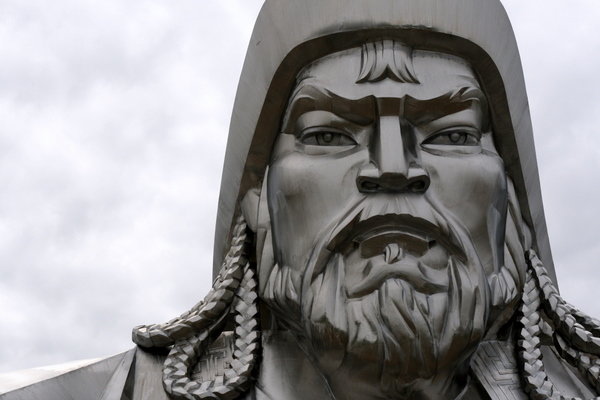
The Mongol Archive: Medieval Links Between France and Mongolia www.thediplomat.com
The medieval Mongol archive, dating from the 13th century, had a profound influence on French maps and exploration.
On January 4, 1254, a French monk named William of Rubruck had his first audience with the Great Khan Mongke at the khan’s encampment in Mongolia. Rubruck later wrote to King Louis IX of France (also known as Saint Louis) that as he left the tent, the khan’s secretaries and interpreter asked him “numerous questions about the kingdom of France: whether it contained many sheep, cattle and horses – as if they were due to move in and take it all over forthwith.”
This year marks the 60th anniversary of modern diplomatic relations between France and Mongolia, but Rubruck’s account reminds us that their ties are in fact much older.
Today, the relationship between France and Mongolia encompasses many areas, from commerce to counterterrorism. Their cooperation is based on common principles and interests. But the situation was rather different 800 years ago. The French and the Mongols first encountered each other because both had expansionist ambitions: the French, with their Christian allies, sought to conquer Jerusalem and the surrounding lands through crusade, while Mongol conquests reached into the Middle East and central Europe.
French crusaders in Egypt were among the first Europeans to hear of the Mongols in 1221. They received garbled reports that claimed Chinggis Khan was a Christian lord named “King David” who was coming to assist the crusaders. From the outset, the Mongols awakened European hopes of Asian alliances.
When the Mongols invaded Europe in the late 1230s, few in Europe knew who they were or what they wanted. To answer these questions, the kings of France, popes, and other European leaders collected as much information about the Mongols as possible. The result was the “Mongol archive”: the collection of documents produced or housed in Europe that described or referred to the Mongols.
Forgetting past hopes of an alliance, Europeans feared that the Mongols were allies of the devil or Antichrist who heralded the apocalypse. It fell to the Catholic church, whose clergy included educated, multilingual, and experienced diplomats, to discover the truth about the Mongols.
The early reports by the monks John of Plano Carpini (an Italian), Simon of Saint-Quentin (a Frenchman), and Rubruck describe everything from Mongol law and religion to dress and battle tactics. These documents are among the most important sources we have on medieval Mongol society. After Europeans realized that the Mongols were not monsters but people with a very different culture, they tried to convert them to Christianity and make them allies against Islam.
One of the best documented attempts at conversion was that of King Louis IX. In 1249, he sent a tent in the form of a chapel, relics, and other devotional objects to the Great Khan Guyuk. However, Guyuk died before the embassy arrived. His widow, Oghul Qaimish, sent an imperious reply to Louis demanding more tribute. A chronicler tells us that the king greatly regretted sending the embassy.
Despite such misfires, French interest in the Mongols endured. In 1291, the last crusader stronghold in the Middle East was captured by Muslim forces. For the next 40 years, numerous treatises were written advocating an alliance with the Mongols against Islamic realms for the recovery of the Holy Land. Many of these treatises were written for or owned by the kings and nobility of France.
Moreover, in 1298, Marco Polo completed his book, “The Description of the World,” which was the first European text to provide an extensive description of the Far East. He wrote in a dialect of French because he wanted a large international audience. The French monarchy and nobility commissioned some of the most beautiful copies of Polo’s book.
In 1307, Hayton of Corycus, a member of the Armenian royal family who fought on the side of the Mongols in Persia and the Middle East, wrote a history of them in French while staying in Poitiers. His text became another major reference on the Mongols.
An illustration, based on a 15th century author’s imagining, of the Polos kneeling before Kublai Khan and presenting him a cross and a Bible. Image via the National Library of France.
French fascination with the Mongols continued in the 14th century despite significant crises. In 1335, the Mongol khanate in Persia collapsed; in the 1330s and 1340s the plague swept across Eurasia; and in 1368 the Mongol realm in China, known as the Yuan Empire, fell. Even though contact between France and the Mongols was interrupted for decades, the French continued to read John of Plano Carpini, Marco Polo, Hayton, and the account of Odoric of Pordenone, an Italian monk who had traveled across Asia in the 1320s.
In the 1350s, an enterprising writer who called himself Sir John Mandeville, and who claimed to be a globetrotting pilgrim and mercenary, wrote a fictional account of his travels in French. He drew heavily on Plano Carpini, Hayton, Odoric, and other sources on the Mongols for his description of a fabulously wealthy and incredibly powerful Mongol realm in the Far East. “The Book of Sir John Mandeville” became the most popular source on the Mongols in late medieval Europe and ensured that they were not forgotten.
The last official contact between France and the Mongol world in the Middle Ages occurred in 1403, when Archbishop John of Sultaniyeh visited Paris. John claimed to have come on behalf of Tamerlane, who had defeated the Ottoman Sultan Bayezid the year before. While it seems unlikely that Tamerlane endorsed the embassy, John’s visit is nonetheless significant because he composed a biography of Tamerlane in French.
John insisted that Tamerlane was a Mongol, not a Turk, and could therefore be an ally of France and Christendom. John thereby drew on the long tradition of hope for alliance with the Mongols. However, Tamerlane died in 1405, and for the next century the French – distracted by war and internal conflicts – were principally concerned with domestic and European affairs.
Although most of Europe lost contact with the Mongols in the 15th century, the European dream of renewing relations lived on for generations. Christopher Columbus was one of many explorers who sought the wealthy Mongol realms described by Marco Polo and who hoped to convert the Mongols to Christianity. In France, cartographers and navigators continued to read Polo and other Mongol texts well into the 16th century. The medieval Mongol archive had a profound influence on French maps and exploration, not least because it led the French to believe that settlement in Canada would provide a direct route to the mythical riches of the Far East.
The Mongols introduced medieval Europeans to an Asia unknown to their intellectual traditions. William of Rubruck wrote that when he first encountered the Mongols, he felt as if he were entering another world. As France and Mongolia celebrate 60 years of diplomatic relations, it is important to recall their deeper history, which was marked by fear, suspicion, curiosity, admiration, and wonder.
The Franco-Mongolian relationship is a testament to the benefits of dialogue, learning, and openness among nations. It has enriched both societies for centuries. May it continue to do so.
By Mark Cruse
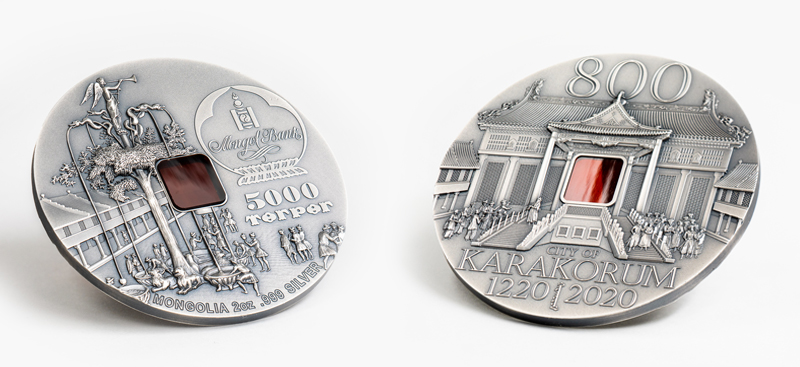
“Year of the Snake” Commemorative Coin Now on the Market www.montsame.mn
The Treasury Department of the Bank of Mongolia has issued the “Year of the Snake” commemorative silver coin, weighing one ounce and made of 999.9 fine silver, in honor of the Wood Snake Year of the 17th cycle, known as “Eldev Erdenet.”
In 2020, the Treasury of the Bank of Mongolia launched a series of 12-year commemorative coins, featuring traditional Mongolian painting techniques, beginning with the “Year of the Rat” silver coin. This was followed by the “Year of the Ox” in 2021, the “Year of the Tiger” in 2022, the “Year of the Rabbit” in 2023, and the “Year of the Dragon” in 2024, all of which were produced and released as one-ounce silver coins.
This series is distinctive for its depiction of the traditional Mongolian zodiac, which features a human-bodied figure with the head of one of the 12 zodiac animals, holding symbolic elements representing each year. Each design is crafted using traditional Mongolian drawing techniques. The “Year of the Snake” commemorative coin specifically portrays the right hand igniting a flame, symbolizing energy and vitality. It has been produced using modern smart-minting and high-relief technologies.
Additionally, the Treasury Department of the Bank of Mongolia continues to offer franchise coins, the “Chinggis Khaan” one-ounce gold coin, as well as gold and silver bars and pelletized silver.
- «
- 1
- 2
- 3
- 4
- 5
- 6
- 7
- 8
- 9
- 10
- 11
- 12
- 13
- 14
- 15
- 16
- 17
- 18
- 19
- 20
- 21
- 22
- 23
- 24
- 25
- 26
- 27
- 28
- 29
- 30
- 31
- 32
- 33
- 34
- 35
- 36
- 37
- 38
- 39
- 40
- 41
- 42
- 43
- 44
- 45
- 46
- 47
- 48
- 49
- 50
- 51
- 52
- 53
- 54
- 55
- 56
- 57
- 58
- 59
- 60
- 61
- 62
- 63
- 64
- 65
- 66
- 67
- 68
- 69
- 70
- 71
- 72
- 73
- 74
- 75
- 76
- 77
- 78
- 79
- 80
- 81
- 82
- 83
- 84
- 85
- 86
- 87
- 88
- 89
- 90
- 91
- 92
- 93
- 94
- 95
- 96
- 97
- 98
- 99
- 100
- 101
- 102
- 103
- 104
- 105
- 106
- 107
- 108
- 109
- 110
- 111
- 112
- 113
- 114
- 115
- 116
- 117
- 118
- 119
- 120
- 121
- 122
- 123
- 124
- 125
- 126
- 127
- 128
- 129
- 130
- 131
- 132
- 133
- 134
- 135
- 136
- 137
- 138
- 139
- 140
- 141
- 142
- 143
- 144
- 145
- 146
- 147
- 148
- 149
- 150
- 151
- 152
- 153
- 154
- 155
- 156
- 157
- 158
- 159
- 160
- 161
- 162
- 163
- 164
- 165
- 166
- 167
- 168
- 169
- 170
- 171
- 172
- 173
- 174
- 175
- 176
- 177
- 178
- 179
- 180
- 181
- 182
- 183
- 184
- 185
- 186
- 187
- 188
- 189
- 190
- 191
- 192
- 193
- 194
- 195
- 196
- 197
- 198
- 199
- 200
- 201
- 202
- 203
- 204
- 205
- 206
- 207
- 208
- 209
- 210
- 211
- 212
- 213
- 214
- 215
- 216
- 217
- 218
- 219
- 220
- 221
- 222
- 223
- 224
- 225
- 226
- 227
- 228
- 229
- 230
- 231
- 232
- 233
- 234
- 235
- 236
- 237
- 238
- 239
- 240
- 241
- 242
- 243
- 244
- 245
- 246
- 247
- 248
- 249
- 250
- 251
- 252
- 253
- 254
- 255
- 256
- 257
- 258
- 259
- 260
- 261
- 262
- 263
- 264
- 265
- 266
- 267
- 268
- 269
- 270
- 271
- 272
- 273
- 274
- 275
- 276
- 277
- 278
- 279
- 280
- 281
- 282
- 283
- 284
- 285
- 286
- 287
- 288
- 289
- 290
- 291
- 292
- 293
- 294
- 295
- 296
- 297
- 298
- 299
- 300
- 301
- 302
- 303
- 304
- 305
- 306
- 307
- 308
- 309
- 310
- 311
- 312
- 313
- 314
- 315
- 316
- 317
- 318
- 319
- 320
- 321
- 322
- 323
- 324
- 325
- 326
- 327
- 328
- 329
- 330
- 331
- 332
- 333
- 334
- 335
- 336
- 337
- 338
- 339
- 340
- 341
- 342
- 343
- 344
- 345
- 346
- 347
- 348
- 349
- 350
- 351
- 352
- 353
- 354
- 355
- 356
- 357
- 358
- 359
- 360
- 361
- 362
- 363
- 364
- 365
- 366
- 367
- 368
- 369
- 370
- 371
- 372
- 373
- 374
- 375
- 376
- 377
- 378
- 379
- 380
- 381
- 382
- 383
- 384
- 385
- 386
- 387
- 388
- 389
- 390
- 391
- 392
- 393
- 394
- 395
- 396
- 397
- 398
- 399
- 400
- 401
- 402
- 403
- 404
- 405
- 406
- 407
- 408
- 409
- 410
- 411
- 412
- 413
- 414
- 415
- 416
- 417
- 418
- 419
- 420
- 421
- 422
- 423
- 424
- 425
- 426
- 427
- 428
- 429
- 430
- 431
- 432
- 433
- 434
- 435
- 436
- 437
- 438
- 439
- 440
- 441
- 442
- 443
- 444
- 445
- 446
- 447
- 448
- 449
- 450
- 451
- 452
- 453
- 454
- 455
- 456
- 457
- 458
- 459
- 460
- 461
- 462
- 463
- 464
- 465
- 466
- 467
- 468
- 469
- 470
- 471
- 472
- 473
- 474
- 475
- 476
- 477
- 478
- 479
- 480
- 481
- 482
- 483
- 484
- 485
- 486
- 487
- 488
- 489
- 490
- 491
- 492
- 493
- 494
- 495
- 496
- 497
- 498
- 499
- 500
- 501
- 502
- 503
- 504
- 505
- 506
- 507
- 508
- 509
- 510
- 511
- 512
- 513
- 514
- 515
- 516
- 517
- 518
- 519
- 520
- 521
- 522
- 523
- 524
- 525
- 526
- 527
- 528
- 529
- 530
- 531
- 532
- 533
- 534
- 535
- 536
- 537
- 538
- 539
- 540
- 541
- 542
- 543
- 544
- 545
- 546
- 547
- 548
- 549
- 550
- 551
- 552
- 553
- 554
- 555
- 556
- 557
- 558
- 559
- 560
- 561
- 562
- 563
- 564
- 565
- 566
- 567
- 568
- 569
- 570
- 571
- 572
- 573
- 574
- 575
- 576
- 577
- 578
- 579
- 580
- 581
- 582
- 583
- 584
- 585
- 586
- 587
- 588
- 589
- 590
- 591
- 592
- 593
- 594
- 595
- 596
- 597
- 598
- 599
- 600
- 601
- 602
- 603
- 604
- 605
- 606
- 607
- 608
- 609
- 610
- 611
- 612
- 613
- 614
- 615
- 616
- 617
- 618
- 619
- 620
- 621
- 622
- 623
- 624
- 625
- 626
- 627
- 628
- 629
- 630
- 631
- 632
- 633
- 634
- 635
- 636
- 637
- 638
- 639
- 640
- 641
- 642
- 643
- 644
- 645
- 646
- 647
- 648
- 649
- 650
- 651
- 652
- 653
- 654
- 655
- 656
- 657
- 658
- 659
- 660
- 661
- 662
- 663
- 664
- 665
- 666
- 667
- 668
- 669
- 670
- 671
- 672
- 673
- 674
- 675
- 676
- 677
- 678
- 679
- 680
- 681
- 682
- 683
- 684
- 685
- 686
- 687
- 688
- 689
- 690
- 691
- 692
- 693
- 694
- 695
- 696
- 697
- 698
- 699
- 700
- 701
- 702
- 703
- 704
- 705
- 706
- 707
- 708
- 709
- 710
- 711
- 712
- 713
- 714
- 715
- 716
- 717
- 718
- 719
- 720
- 721
- 722
- 723
- 724
- 725
- 726
- 727
- 728
- 729
- 730
- 731
- 732
- 733
- 734
- 735
- 736
- 737
- 738
- 739
- 740
- 741
- 742
- 743
- 744
- 745
- 746
- 747
- 748
- 749
- 750
- 751
- 752
- 753
- 754
- 755
- 756
- 757
- 758
- 759
- 760
- 761
- 762
- 763
- 764
- 765
- 766
- 767
- 768
- 769
- 770
- 771
- 772
- 773
- 774
- 775
- 776
- 777
- 778
- 779
- 780
- 781
- 782
- 783
- 784
- 785
- 786
- 787
- 788
- 789
- 790
- 791
- 792
- 793
- 794
- 795
- 796
- 797
- 798
- 799
- 800
- 801
- 802
- 803
- 804
- 805
- 806
- 807
- 808
- 809
- 810
- 811
- 812
- 813
- 814
- 815
- 816
- 817
- 818
- 819
- 820
- 821
- 822
- 823
- 824
- 825
- 826
- 827
- 828
- 829
- 830
- 831
- 832
- 833
- 834
- 835
- 836
- 837
- 838
- 839
- 840
- 841
- 842
- 843
- 844
- 845
- 846
- 847
- 848
- 849
- 850
- 851
- 852
- 853
- 854
- 855
- 856
- 857
- 858
- 859
- 860
- 861
- 862
- 863
- 864
- 865
- 866
- 867
- 868
- 869
- 870
- 871
- 872
- 873
- 874
- 875
- 876
- 877
- 878
- 879
- 880
- 881
- 882
- 883
- 884
- 885
- 886
- 887
- 888
- 889
- 890
- 891
- 892
- 893
- 894
- 895
- 896
- 897
- 898
- 899
- 900
- 901
- 902
- 903
- 904
- 905
- 906
- 907
- 908
- 909
- 910
- 911
- 912
- 913
- 914
- 915
- 916
- 917
- 918
- 919
- 920
- 921
- 922
- 923
- 924
- 925
- 926
- 927
- 928
- 929
- 930
- 931
- 932
- 933
- 934
- 935
- 936
- 937
- 938
- 939
- 940
- 941
- 942
- 943
- 944
- 945
- 946
- 947
- 948
- 949
- 950
- 951
- 952
- 953
- 954
- 955
- 956
- 957
- 958
- 959
- 960
- 961
- 962
- 963
- 964
- 965
- 966
- 967
- 968
- 969
- 970
- 971
- 972
- 973
- 974
- 975
- 976
- 977
- 978
- 979
- 980
- 981
- 982
- 983
- 984
- 985
- 986
- 987
- 988
- 989
- 990
- 991
- 992
- 993
- 994
- 995
- 996
- 997
- 998
- 999
- 1000
- 1001
- 1002
- 1003
- 1004
- 1005
- 1006
- 1007
- 1008
- 1009
- 1010
- 1011
- 1012
- 1013
- 1014
- 1015
- 1016
- 1017
- 1018
- 1019
- 1020
- 1021
- 1022
- 1023
- 1024
- 1025
- 1026
- 1027
- 1028
- 1029
- 1030
- 1031
- 1032
- 1033
- 1034
- 1035
- 1036
- 1037
- 1038
- 1039
- 1040
- 1041
- 1042
- 1043
- 1044
- 1045
- 1046
- 1047
- 1048
- 1049
- 1050
- 1051
- 1052
- 1053
- 1054
- 1055
- 1056
- 1057
- 1058
- 1059
- 1060
- 1061
- 1062
- 1063
- 1064
- 1065
- 1066
- 1067
- 1068
- 1069
- 1070
- 1071
- 1072
- 1073
- 1074
- 1075
- 1076
- 1077
- 1078
- 1079
- 1080
- 1081
- 1082
- 1083
- 1084
- 1085
- 1086
- 1087
- 1088
- 1089
- 1090
- 1091
- 1092
- 1093
- 1094
- 1095
- 1096
- 1097
- 1098
- 1099
- 1100
- 1101
- 1102
- 1103
- 1104
- 1105
- 1106
- 1107
- 1108
- 1109
- 1110
- 1111
- 1112
- 1113
- 1114
- 1115
- 1116
- 1117
- 1118
- 1119
- 1120
- 1121
- 1122
- 1123
- 1124
- 1125
- 1126
- 1127
- 1128
- 1129
- 1130
- 1131
- 1132
- 1133
- 1134
- 1135
- 1136
- 1137
- 1138
- 1139
- 1140
- 1141
- 1142
- 1143
- 1144
- 1145
- 1146
- 1147
- 1148
- 1149
- 1150
- 1151
- 1152
- 1153
- 1154
- 1155
- 1156
- 1157
- 1158
- 1159
- 1160
- 1161
- 1162
- 1163
- 1164
- 1165
- 1166
- 1167
- 1168
- 1169
- 1170
- 1171
- 1172
- 1173
- 1174
- 1175
- 1176
- 1177
- 1178
- 1179
- 1180
- 1181
- 1182
- 1183
- 1184
- 1185
- 1186
- 1187
- 1188
- 1189
- 1190
- 1191
- 1192
- 1193
- 1194
- 1195
- 1196
- 1197
- 1198
- 1199
- 1200
- 1201
- 1202
- 1203
- 1204
- 1205
- 1206
- 1207
- 1208
- 1209
- 1210
- 1211
- 1212
- 1213
- 1214
- 1215
- 1216
- 1217
- 1218
- 1219
- 1220
- 1221
- 1222
- 1223
- 1224
- 1225
- 1226
- 1227
- 1228
- 1229
- 1230
- 1231
- 1232
- 1233
- 1234
- 1235
- 1236
- 1237
- 1238
- 1239
- 1240
- 1241
- 1242
- 1243
- 1244
- 1245
- 1246
- 1247
- 1248
- 1249
- 1250
- 1251
- 1252
- 1253
- 1254
- 1255
- 1256
- 1257
- 1258
- 1259
- 1260
- 1261
- 1262
- 1263
- 1264
- 1265
- 1266
- 1267
- 1268
- 1269
- 1270
- 1271
- 1272
- 1273
- 1274
- 1275
- 1276
- 1277
- 1278
- 1279
- 1280
- 1281
- 1282
- 1283
- 1284
- 1285
- 1286
- 1287
- 1288
- 1289
- 1290
- 1291
- 1292
- 1293
- 1294
- 1295
- 1296
- 1297
- 1298
- 1299
- 1300
- 1301
- 1302
- 1303
- 1304
- 1305
- 1306
- 1307
- 1308
- 1309
- 1310
- 1311
- 1312
- 1313
- 1314
- 1315
- 1316
- 1317
- 1318
- 1319
- 1320
- 1321
- 1322
- 1323
- 1324
- 1325
- 1326
- 1327
- 1328
- 1329
- 1330
- 1331
- 1332
- 1333
- 1334
- 1335
- 1336
- 1337
- 1338
- 1339
- 1340
- 1341
- 1342
- 1343
- 1344
- 1345
- 1346
- 1347
- 1348
- 1349
- 1350
- 1351
- 1352
- 1353
- 1354
- 1355
- 1356
- 1357
- 1358
- 1359
- 1360
- 1361
- 1362
- 1363
- 1364
- 1365
- 1366
- 1367
- 1368
- 1369
- 1370
- 1371
- 1372
- 1373
- 1374
- 1375
- 1376
- 1377
- 1378
- 1379
- 1380
- 1381
- 1382
- 1383
- 1384
- 1385
- 1386
- 1387
- 1388
- 1389
- 1390
- 1391
- 1392
- 1393
- 1394
- 1395
- 1396
- 1397
- 1398
- 1399
- 1400
- 1401
- 1402
- 1403
- 1404
- 1405
- 1406
- 1407
- 1408
- 1409
- 1410
- 1411
- 1412
- 1413
- 1414
- 1415
- 1416
- 1417
- 1418
- 1419
- 1420
- 1421
- 1422
- 1423
- 1424
- 1425
- 1426
- 1427
- 1428
- 1429
- 1430
- 1431
- 1432
- 1433
- 1434
- 1435
- 1436
- 1437
- 1438
- 1439
- 1440
- 1441
- 1442
- 1443
- 1444
- 1445
- 1446
- 1447
- 1448
- 1449
- 1450
- 1451
- 1452
- 1453
- 1454
- 1455
- 1456
- 1457
- 1458
- 1459
- 1460
- 1461
- 1462
- 1463
- 1464
- 1465
- 1466
- 1467
- 1468
- 1469
- 1470
- 1471
- 1472
- 1473
- 1474
- 1475
- 1476
- 1477
- 1478
- 1479
- 1480
- 1481
- 1482
- 1483
- 1484
- 1485
- 1486
- 1487
- 1488
- 1489
- 1490
- 1491
- 1492
- 1493
- 1494
- 1495
- 1496
- 1497
- 1498
- 1499
- 1500
- 1501
- 1502
- 1503
- 1504
- 1505
- 1506
- 1507
- 1508
- 1509
- 1510
- 1511
- 1512
- 1513
- 1514
- 1515
- 1516
- 1517
- 1518
- 1519
- 1520
- 1521
- 1522
- 1523
- 1524
- 1525
- 1526
- 1527
- 1528
- 1529
- 1530
- 1531
- 1532
- 1533
- 1534
- 1535
- 1536
- 1537
- 1538
- 1539
- 1540
- 1541
- 1542
- 1543
- 1544
- 1545
- 1546
- 1547
- 1548
- 1549
- 1550
- 1551
- 1552
- 1553
- 1554
- 1555
- 1556
- 1557
- 1558
- 1559
- 1560
- 1561
- 1562
- 1563
- 1564
- 1565
- 1566
- 1567
- 1568
- 1569
- 1570
- 1571
- 1572
- 1573
- 1574
- 1575
- 1576
- 1577
- 1578
- 1579
- 1580
- 1581
- 1582
- 1583
- 1584
- 1585
- 1586
- 1587
- 1588
- 1589
- 1590
- 1591
- 1592
- 1593
- 1594
- 1595
- 1596
- 1597
- 1598
- 1599
- 1600
- 1601
- 1602
- 1603
- 1604
- 1605
- 1606
- 1607
- 1608
- 1609
- 1610
- 1611
- 1612
- 1613
- 1614
- 1615
- 1616
- 1617
- 1618
- 1619
- 1620
- 1621
- 1622
- 1623
- 1624
- 1625
- 1626
- 1627
- 1628
- 1629
- 1630
- 1631
- 1632
- 1633
- 1634
- 1635
- 1636
- 1637
- 1638
- 1639
- 1640
- 1641
- 1642
- 1643
- 1644
- 1645
- 1646
- 1647
- 1648
- 1649
- 1650
- 1651
- 1652
- 1653
- 1654
- 1655
- 1656
- 1657
- 1658
- 1659
- 1660
- 1661
- 1662
- 1663
- 1664
- 1665
- 1666
- 1667
- 1668
- 1669
- 1670
- 1671
- 1672
- 1673
- 1674
- 1675
- 1676
- 1677
- 1678
- 1679
- 1680
- 1681
- 1682
- 1683
- 1684
- 1685
- 1686
- 1687
- 1688
- 1689
- 1690
- 1691
- 1692
- 1693
- 1694
- 1695
- 1696
- 1697
- 1698
- 1699
- 1700
- 1701
- 1702
- 1703
- 1704
- 1705
- 1706
- 1707
- 1708
- 1709
- 1710
- 1711
- 1712
- 1713
- 1714
- 1715
- 1716
- »






